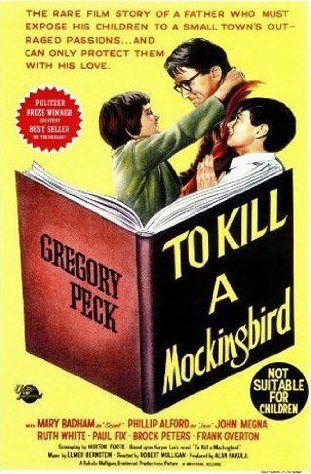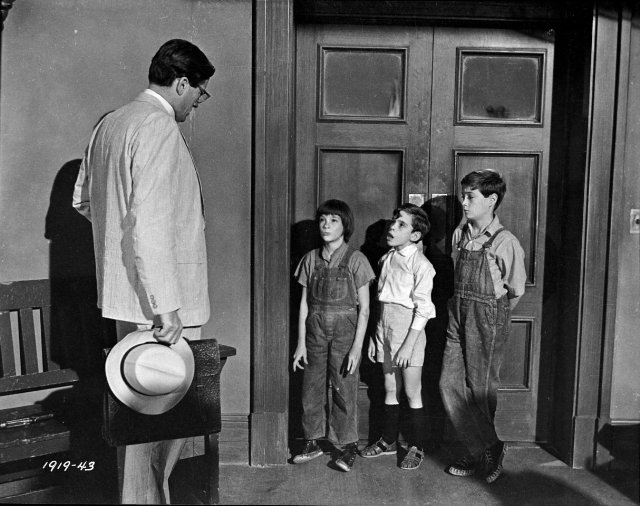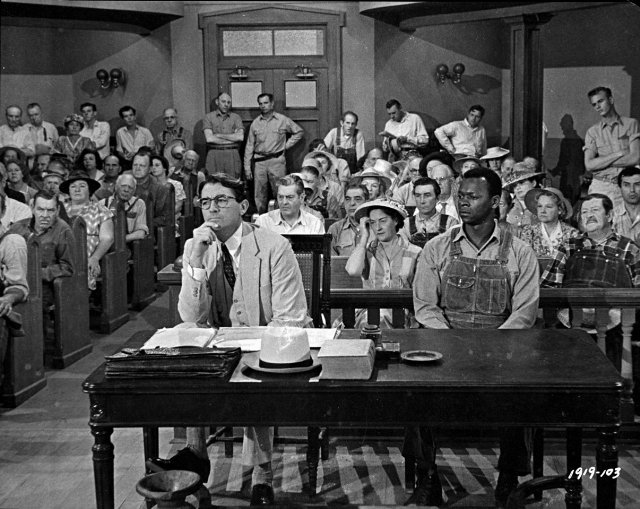Our resident film reviewer is writer Harry Casey-Woodward who will be sharing his opinions on things he has watched…
To Kill a Mockingbird, 1962, cert 12, dir Robert Mulligan, 3/5
Harper Lee was a one of a kind author. She only published two books, but not many writers can claim the same amount of popularity and success she received. Not only was her first book To Kill a Mockingbird an instant hit when first released in 1960, it won the Pulitzer prize and is still regarded as a literary classic. Furthermore, it was adapted for film only two years later. With the author’s recent passing, I thought it was high time I ticked the movie off my cinematic-classics-watch list.
I only got round to reading both of Lee’s novels last year. I thought Mockingbird was a superb piece of storytelling, blending childhood charm with darker themes. The sequel she published last year, Go Set a Watchman, I did not enjoy so much. Not because of the new controversies surrounding the characters but because it wasn’t my kind of novel and its message was muddled for me by the end.
After reading Mockingbird, I was curious to see how its storyline of a white lawyer defending a black man accused of rape would have been adapted for the early 60s. The book itself was subtle in depicting such a controversial plot, but its depictions of racism were still shocking for a book about children. I wondered if the filmmakers might have toned down those elements with respect for the censors. However, the infrequent use of the ‘n’ word and ‘rape’ were kept in, which was still shocking to see contrasted with the scenes of kids playing and family tenderness. But maybe that was the point, to show the light and dark sides of the American South.
The film’s strongest point is that it is a near perfect adaptation of the book. Very little is changed (except to condense the story in some places), and the only parts left out were extra story padding depicting the intricacies of Southern American society, which I didn’t greatly miss. The best scenes are all kept in and are just as I imagined them in the book, with all the drama, suspense and little details intact.
The good acting helps as well. Gregory Peck’s Oscar winning performance as lawyer and widowed father Atticus Finch is both charming and noble, although I felt his acting in highly emotional moments was a bit forced. The child actors were great as well, if you’re ok with Alabaman children shouting everything at the tops of their high-pitched voices. The most emotional performance for me came from Brock Peters], the actor playing the accused Tom Robinson. His near breakdown when telling his side of the story to a courtroom packed with white folks is enough to show the extent of racism present in the society depicted.
It is interesting to view the film after reading Go Set a Watchman, when the seemingly heroic depiction of Atticus in both the Mockingbird book and film is challenged. Nevertheless it is still worth watching the film for quality cinema, its ability to enchant, frighten and move you still undimmed.


